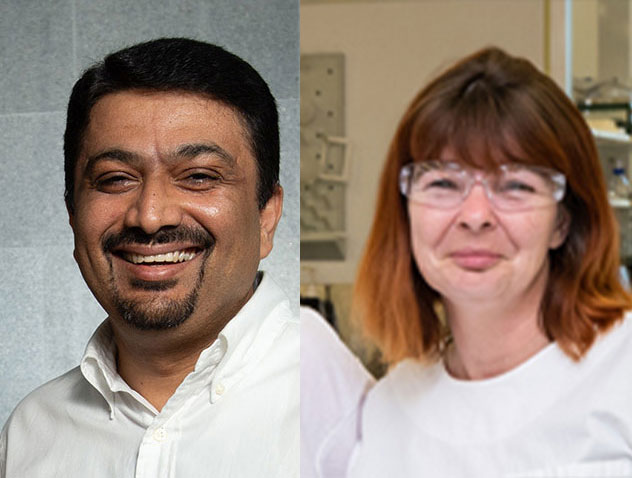Federal funding for TRI-based researchers
TRI-based researchers from The University of Queensland, Mater Research and Queensland University of Technology are sharing in more than $12million in the latest round of National Health and Medical Research Council (NHMRC) funding.
The support will fund research including projects in cancer, autoimmune diseases, osteoporosis and paediatric non-alcoholic fatty liver disease, as well as in improving Indigenous patient care and health outcomes.
Investigator Grants provide the highest-performing researchers at all career stages with funding to pursue important new research directions as they arise, form collaborations or establish their own research programs.
Recipients include:
A/Prof Fiona Simpson, with $2.6million to investigate immune responses and identify therapeutic targets to prevent tumour recurrence
Dr John Kemp, with $1.5million to accelerate therapeutic development for patients with osteoporosis
Dr Zhian Chen, with $662,040 to develop next-generation therapies to target immune system exhaustion in people with cancer
Dr Sahar Keshvari, with $637,040 to investigate therapeutics for paediatric non-alcoholic fatty liver disease.
Among the recipients, A/Prof Simpson (pictured right) will lead a laboratory team aiming to alter cell uptake to make pharmaceuticals more effective.
“My team discovered a way to improve antibody therapy in humans and showed the drug combination is safe and acceptable to people undergoing treatment,” she said.
“I am developing this technology testing applications in various disease and antibody therapy setting and Phase II clinical trials.
“We are developing research on controlling immune responses and on how cancer cells escape immune cells, with an aim to identify drug targets to deliver cancer therapies which prevent tumour recurrence."
Ideas Grants provide opportunities for researchers at every career stage to translate their ideas, whether they be formed in the laboratory, in the clinic or in the community, into deliverable evidence-based outcomes.
Recipients include:
A/Prof Shivashankar Nagaraj, with $1.7million to provide insights into the genetic basis of drug efficacy and safety in Indigenous Australians
A/Prof Jakob Begun, with $1.6million to improve treatment of inflammatory bowel diseases
A/Prof Emma Hamilton-Williams, with $1.4million to target gut microbial metabolites to prevent type 1 diabetes
Dr Pablo Canete, with $1.3million to develop safer therapies for autoimmune disease
Prof Antje Blumenthal, $897,069 to investigate mechanisms that aid immune cells to control TB bacteria.
Among the recipients, A/Prof Nagaraj (pictured left) aims to tackle a lack of genetic and drug safety data for Indigenous Australians that creates alarming health inequities.
“This population is underrepresented in genomic studies,” he says.
“This research will ultimately provide new insight into the genetic basis of drug efficacy and safety in Indigenous Australians, leading to a customised genetic test that will serve as a personalised roadmap for optimal drug selection to streamline Indigenous patient care and improve health outcomes.”







